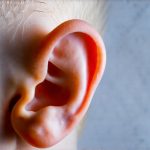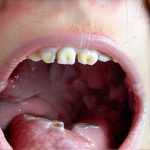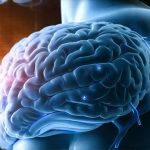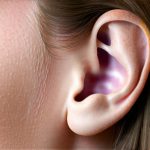Dizziness and vestibular imbalance – sensations we often dismiss as temporary inconveniences – can be profoundly disruptive to daily life. From a mild wooziness to debilitating vertigo, these experiences impact everything from work and social activities to basic functionality. Traditionally, the focus on understanding and treating these conditions has centered around the inner ear and neurological pathways. However, emerging research is increasingly highlighting a surprising and often overlooked player in maintaining balance and spatial orientation: the gut microbiome. This complex ecosystem of trillions of microorganisms residing within our digestive tract isn’t just about digestion anymore; it’s deeply interconnected with brain function, immune regulation, and even our sense of equilibrium.
The growing field of microbiome research is revealing a bidirectional communication pathway known as the gut-brain axis. This intricate network allows constant dialogue between the gastrointestinal system and the central nervous system. What happens in the gut doesn’t stay in the gut; it influences brain chemistry, neuroinflammation, and ultimately, neurological function. Disruptions to this delicate balance – often referred to as dysbiosis – are now being investigated for their potential role in a wide range of conditions, including anxiety, depression, and increasingly, vestibular disorders. This article will explore the complex relationship between gut health, dizziness, and imbalances affecting our sense of stability, offering insight into current research and potential future directions.
The Gut-Brain Axis and Vestibular Function
The link between the gut microbiome and brain function isn’t simply a theoretical concept; it’s rooted in established physiological mechanisms. Several pathways facilitate this communication:
– Neural Pathways: The vagus nerve, a major cranial nerve directly connecting the gut to the brain, acts as a primary conduit for signals.
– Immune System Modulation: A significant portion of our immune system resides in the gut, and the microbiome profoundly influences its activity. Gut dysbiosis can trigger systemic inflammation that impacts neurological function.
– Metabolic Pathways: The microbiome produces various neurotransmitters and metabolites (like short-chain fatty acids) that directly influence brain chemistry and neuronal signaling.
Specifically regarding vestibular function, the inner ear’s delicate balance system relies on precise neural processing. Inflammation, altered neurotransmitter levels, or even changes in blood flow to the brain – all potentially influenced by gut health – can disrupt this process. Consider how a systemic inflammatory response, triggered by dysbiosis, might affect the sensitive hair cells within the vestibular system, leading to inaccurate signals and subsequent dizziness. Furthermore, imbalances in gut bacteria have been linked to altered serotonin production, a neurotransmitter crucial for balance and spatial orientation. Studies are beginning to demonstrate correlations between specific microbiome compositions and susceptibility to conditions like Meniere’s disease, which presents with vertigo, tinnitus, and hearing loss. It’s important to note that these are currently correlations – establishing causation requires further research – but the evidence is mounting that gut health plays a significant role in vestibular well-being. The importance of maintaining a healthy gut biome diversity is becoming increasingly clear as we learn more about its impact on overall health.
The influence of the microbiome extends beyond direct neurological effects. The gut barrier’s integrity—often referred to as “leaky gut”—is heavily influenced by microbial composition. When this barrier becomes compromised, allowing undigested food particles and bacterial toxins to enter the bloodstream, it can trigger systemic inflammation and immune responses that affect brain function and potentially exacerbate vestibular symptoms. This highlights the importance of a healthy gut lining for overall neurological health and balance. Understanding leaky gut and its impact on inflammatory processes is key to recognizing this connection.
Potential Mechanisms Linking Dysbiosis to Dizziness
Understanding how the gut microbiome might contribute to dizziness requires delving into specific mechanisms. One key area is the production of neurotransmitters. The gut microbiome isn’t just passively hosting bacteria; it’s actively involved in synthesizing vital neurochemicals, including dopamine, serotonin, and GABA – all of which play roles in balance regulation and spatial awareness. Dysbiosis can disrupt this synthesis, leading to deficiencies or imbalances that affect vestibular function. For example:
- Serotonin is primarily produced in the gut, and altered microbial populations can impact its availability, potentially contributing to dizziness and nausea.
- GABA, an inhibitory neurotransmitter essential for calming neuronal activity, is also influenced by gut bacteria. Imbalances could lead to heightened neurological sensitivity and increased susceptibility to vertigo.
Another crucial mechanism involves inflammation. A disrupted microbiome often leads to increased intestinal permeability (“leaky gut”), allowing bacterial components like lipopolysaccharide (LPS) to enter the bloodstream. LPS triggers an immune response, leading to systemic inflammation that can affect brain function and vestibular structures. Chronic inflammation is known to damage inner ear hair cells and disrupt neural pathways vital for balance.
Finally, changes in vagal nerve activity are increasingly recognized as a significant link. The microbiome directly influences vagal tone—the level of activity within the vagus nerve. Dysbiosis can alter vagal signaling, potentially impacting vestibular processing and contributing to dizziness symptoms. Restoring microbial balance may improve vagal tone and subsequently reduce vestibular dysfunction.
The Role of Short-Chain Fatty Acids (SCFAs)
Short-chain fatty acids (SCFAs), produced by the fermentation of dietary fiber in the gut, are emerging as critical mediators between the microbiome and brain health. These metabolites—primarily acetate, propionate, and butyrate—aren’t merely waste products; they exert profound effects on neurological function. Butyrate, in particular, has demonstrated neuroprotective properties and can reduce inflammation.
A healthy gut microbiome produces abundant SCFAs, which then travel to the brain via various pathways, including the bloodstream and vagus nerve. They influence brain health by:
– Reducing neuroinflammation
– Improving blood-brain barrier integrity
– Enhancing neuronal plasticity and cognitive function.
Dysbiosis often leads to reduced SCFA production, depriving the brain of these beneficial metabolites. This can contribute to inflammation, impaired neurological function, and potentially exacerbate dizziness symptoms. Dietary interventions aimed at increasing fiber intake – promoting SCFA production – are therefore being investigated as potential therapeutic strategies for vestibular disorders. It’s a compelling example of how what we eat directly impacts our balance and overall neurological well-being.
Investigating Gut Microbiome Composition in Vestibular Disorders
Research is actively underway to characterize the specific microbial profiles associated with various vestibular conditions. While still in its early stages, several studies have begun to identify differences in gut microbiome composition between individuals with and without dizziness or vestibular imbalances. For instance:
– People with Meniere’s disease often exhibit reduced microbial diversity compared to healthy controls. Specific bacterial groups may also be depleted or overrepresented.
– Individuals experiencing migraine-associated vertigo (dizziness linked to migraines) demonstrate altered gut microbiome profiles, potentially contributing to the inflammatory processes underlying both conditions. The connection between migraines and digestive upset is increasingly recognized in research.
– Studies examining patients with vestibular neuritis – an inflammation of the vestibular nerve – are exploring whether specific microbial imbalances contribute to disease onset and severity.
However, it’s crucial to acknowledge the complexities involved in these studies. Microbial composition varies widely between individuals based on factors like diet, genetics, medication use (particularly antibiotics), and geographic location. This makes it challenging to establish definitive links between specific microbes and vestibular disorders. Furthermore, many studies are relatively small and require larger, more rigorously designed trials to confirm their findings. Despite these challenges, the emerging data strongly suggest that characterizing gut microbiome composition could become a valuable diagnostic tool and potentially inform personalized treatment approaches for individuals experiencing dizziness and balance problems. The impact of gut biome diversity on overall health is becoming increasingly clear.
Potential Therapeutic Interventions
Given the growing evidence linking the gut microbiome to vestibular function, researchers are exploring various therapeutic interventions aimed at restoring microbial balance and improving neurological health. These include:
Dietary modifications represent a foundational approach. Increasing fiber intake – through whole grains, fruits, vegetables, and legumes – promotes SCFA production and supports a diverse gut microbiome. Reducing processed foods, sugar, and unhealthy fats can help minimize inflammation and improve gut barrier integrity. Specific dietary patterns, like the Mediterranean diet, rich in plant-based foods and healthy fats, have demonstrated beneficial effects on both gut health and neurological function.
Probiotics – live microorganisms intended to confer a health benefit when consumed – are another area of investigation. Certain probiotic strains may help restore microbial balance, reduce inflammation, and improve vagal nerve activity. However, it’s crucial to note that probiotics aren’t one-size-fits-all; different strains have different effects. Selecting the appropriate probiotic strain for a specific condition requires careful consideration and ideally guidance from a healthcare professional.
Prebiotics – non-digestible fibers that promote the growth of beneficial gut bacteria – can also be incorporated into dietary strategies. Prebiotic-rich foods include onions, garlic, leeks, asparagus, and bananas. Combining probiotics and prebiotics (a synbiotic approach) may offer synergistic benefits by providing both the live microorganisms and the fuel they need to thrive.
Fecal Microbiota Transplantation (FMT), while still considered experimental for vestibular disorders, holds promise as a more aggressive intervention for restoring microbial diversity in severe cases of dysbiosis. FMT involves transferring fecal matter from a healthy donor to a recipient, effectively repopulating the gut with beneficial bacteria. However, it carries potential risks and is currently reserved for specific medical conditions under strict clinical supervision. The future will reveal whether FMT becomes a viable option for treating vestibular imbalances related to gut microbiome dysfunction.
It’s vital to emphasize that these interventions should not be considered replacements for conventional treatments for dizziness or vestibular disorders. Instead, they represent complementary approaches that may enhance overall health and potentially improve outcomes when integrated into a comprehensive care plan developed in consultation with qualified healthcare professionals. The interplay between the gut microbiome, brain function, and vestibular system is complex, and personalized strategies tailored to individual needs are likely to be most effective. Understanding gut microbiota plays an essential role in this process. Furthermore, recognizing that issues like digestive gas can sometimes signal underlying imbalances within the gut is crucial for proactive health management. And finally, exploring the relationship between leaky gut and digestive gas provides valuable insights into potential causes of discomfort and imbalance.


















